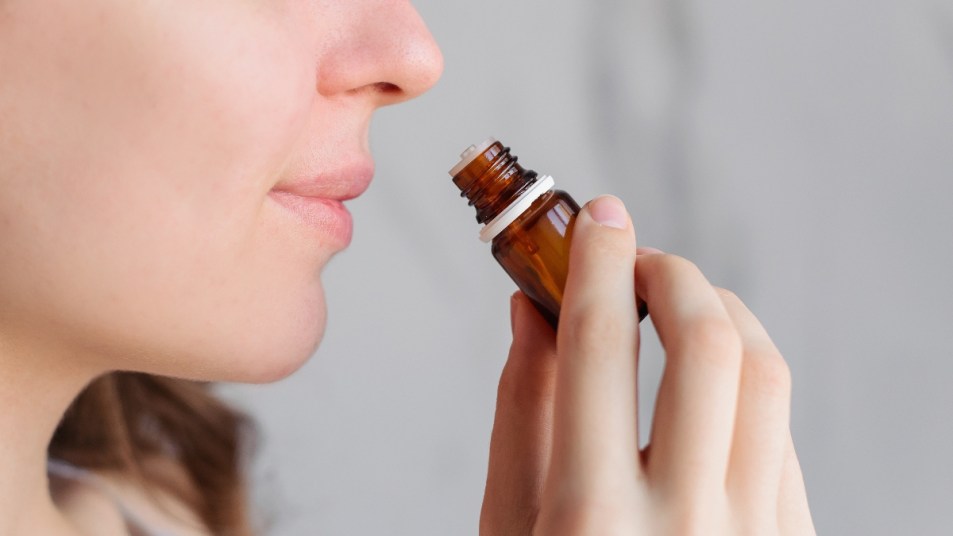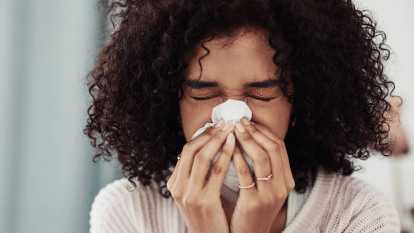Expert Advice: I Lost My Senses of Taste and Smell After COVID. How Can I Get Them Back?
It isn't just a minor annoyance. It can seriously affect your health.

Thanks to vaccines, the rates of severe COVID-19 in the US have gone down dramatically. However, it’s still possible to contract the disease and suffer long-term effects, one of which is the loss of taste and smell. While researchers aren’t sure what causes some patients to lose these senses, it usually comes on quickly after the initial illness.
Fortunately, it’s estimated that just five percent of patients develop long-term taste and smell issues, but if you’re someone who recently developed these symptoms, what can you do? Heading into the holidays without being able to fully enjoy your food or feel 100 percent isn’t just a minor annoyance — it can seriously affect your physical and mental health. There isn’t a miracle solution, but our expert, Dr. Heather Moday, has some suggestions.
Meet our expert.
Heather Moday, MD, is director of the Moday Center in Philadelphia. She is board-certified in allergy and immunology, as well as integrative and holistic medicine. You can follow her on Instagram (@theimmunitymd), where she shares information on health topics. And to ask her a question here, send an email to health@firstforwomen.com.
What To Do When Your Sense of Taste and Smell Goes
“I had COVID a few weeks ago, and while my symptoms were mild, I was surprised to find that I lost my sense of taste and smell,” one of our readers asks. “I didn’t realize the new variants caused that. Is there anything I can do to get them back?”
“Research published in the journal Mayo Clinic Proceedings found as many as 41 percent of people who contract COVID-19 lose their sense of smell to some extent, since the virus appears to attack the region of the brain that controls this sense,” Dr. Moday responds. “And because our sense of taste is linked to smell, loss of one can bring on loss of the other. The newer variants of the virus are less likely to cause these symptoms, but some people are still experiencing them. Symptoms usually dissipate within a few weeks, but since yours are lingering, I can suggest a few methods that seem to be effective.
“First, scent training may help. A study published pre-pandemic in the journal Chemical Senses found that the method, in which you smell strong scents like citrus and floral essential oils, can help retrain the brain to remember odors. And you can do it at home! Gather three or four essential oils or foods with strong scents, like peanut butter or lemon, and inhale each separately for 20 seconds. Try to remember what it smelled like as you breathe. Take a few breaths before you try the next scent. Repeat this process two to three times daily.
“Also, even though food may be unappealing when you can’t taste it, it’s vital to get the nutrients your body needs. It seems that experimenting with different textures and temperatures, like adding crunchy granola to yogurt or melting cheese on top of a burger, may help. Smoothies packed with fruit, veggies and protein can also help ensure you’re getting all of your nutrients.”
This content is not a substitute for professional medical advice or diagnosis. Always consult your physician before pursuing any treatment plan.
A version of this article originally appeared in our print magazine, First for Women.













